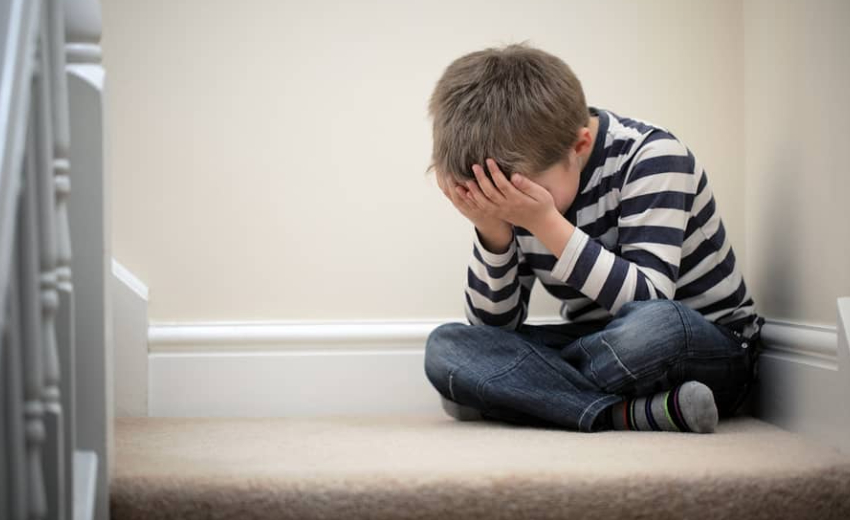
As one of the parents, you must be prepared to deal with both big and small issues.
Trying to take care of your child’s mental health is part of it. When things get serious, it’s critical to step up. Here are some things one can take if they feel early signs of depression in a child.
Find Out How To Spot Warning Signs:
Teenagers go through different stages. With puberty comes a lot of mood swings & emotional episodes, and it can be difficult to tell when their behaviour is just part of growing and then when it’s more serious. The first step in assisting your child in overcoming depression would be to know how to understand it.
Learn to recognize the warning indicators.
- Low self-confidence
- Resignation
- a lack of enthusiasm
- despondency
- Academic performance is deteriorating.
- Changes in eating patterns that are drastic (too much or too little)
- a sense of remorse and shame
- Lack of motivation and energy
- Tiredness and pains
- Suicide and death thoughts
If the child is exhibiting one or more of these signs, they may require professional assistance.
Get Professional Assistance for Them
You can provide expert assistance to your child in a variety of ways:
Consult their pediatrician for more information.
Take them to a mental health specialist.
Make contact with a mental health service in your area.
Look for resources like the American Academy of Child & Adolescent
Psychiatry on the internet.
The essential thing would be that you don’t ignore the problem and instead provide your child with the resources and assistance he or she needs to combat it.
Support Your Child Emotionally:
Your child requires emotional comfort and support, and you must be their primary caregiver. The foundation of future social interactions is emotional support from family.
But how do you go about establishing such a solid foundation?
- Spend time with the children in a meaningful way.
- Promote open & honest communication.
- Pay attention to what your youngster is saying.
- Recognize their internal conflicts.
Supporting your child without being overbearing will help you earn their trust, enabling them to talk out their difficulties and concerns as they arise. This will enable you to recognise potential warning indicators and respond appropriately.
Encourage A Healthy Way Of Life
Physical & mental health both are inextricably linked. A healthy lifestyle might also aid in the management of depressive symptoms. You can’t force your child to live a healthy lifestyle, but you can give healthy alternatives and model a healthy lifestyle for them. Subtle hints and setting a great example can motivate kids to desire to live a healthy lifestyle for themselves.
Here are some things you can encourage your youngster to do:
Exercise on a regular basis: Physical activity has been shown to lower depression severity and is a fantastic stress reliever. Encourage your youngster to participate in sports or simply walk with them on a daily basis. You can provide your company with an exercise partner or propose that they acquire one on their own.
Eat nutritious meals: Food has an impact on our brain, and it can help us cope with stress and depression. As much as possible, provide nutritious meals and encourage people to eat good food. Fill your fridge with fruits, vegetables, and nuts, and get rid of all the sugary drinks & refined sugar.
Sleep on a regular basis: Our bodies feel threatened and fatigued when we don’t get enough sleep. As a result, we get fatigued and unmotivated, which might exacerbate depression. If you really can, try to persuade your youngster to sleep on a regular basis and adhere to a set bedtime.
Assist Them In Feeling Connected:
Isolation is a common side effect of depression. With 80 % of the population below the age of 18, loneliness is a typical occurrence. Depression symptoms can be exacerbated by a lack of engagement and connection. Obviously, you can’t force your youngster to make friends or mingle. Some kids have a hard time interacting socially and making the first step with new pals. As a result, this issue is delicate and time-consuming.
You can do the following:
- Encourage your youngster to join a school group or participate in extracurricular activities.
- Provide them with suggestions for attending various social gatherings.
- At your home, encourage play dates & sleepovers.
- Plan family get-togethers.
Whatever encourages your youngster to interact with others will be beneficial. Just keep in mind that you should never leave loneliness unattended. It isn’t going away by itself.
You must be aware and prepared to react in order to assist your child in overcoming depression. Listen, speak, and encourage; do your best to give a supportive home atmosphere and a fantastic example.
You may assist your child to overcome depression by ensuring that you have a strong & open relationship with them.


